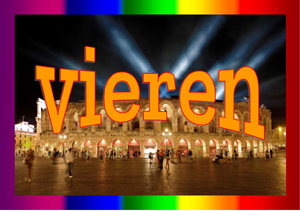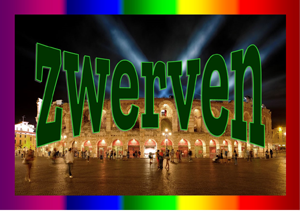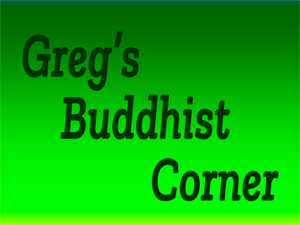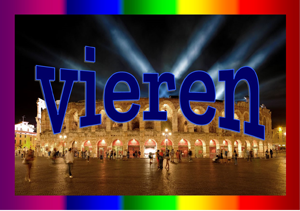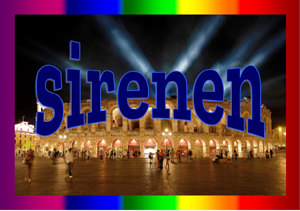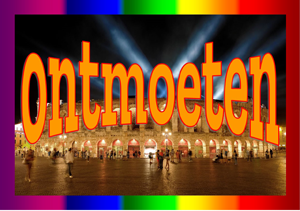The Festival of Lights & Merit
By Greg Suffanti
QFWF, May 29th, 2018; June 14th 2022
Losar, Chötrul Düchen, Saka Dawa, Chokor Düchen, Lhabab Düchen
Celebrating the birth, death & passing into Parinirvana of Shakyamuni Buddha
Saka Dawa is the most important and sacred holy day in the Tibetan Buddhist calendar.
The holy month of Saka Dawa is celebrated from the June 4 until July 2, according to the Tibetan calendar.
In 2019, Saka Dawa falls on Tuesday June 17 ; in 2020 June 5; in 2021 on May 26 and in 2022 on June 14.
Buddhists around the world celebrate the birth, death and passing into Parinirvana of Shakyamuni Buddha during this time.[1] Practitioners and devotees engage in a variety of positive actions in order to create positive energy (or karma) during the month of Saka Dawa.
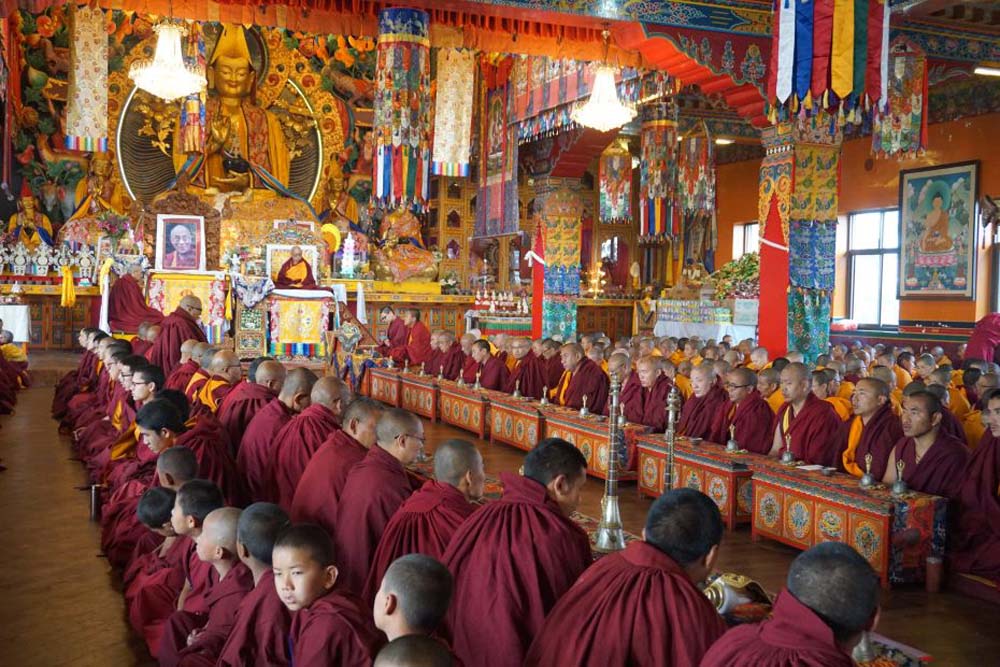
Some people recite mantras like Om Mani Padme Hum, while others circumambulate (to go around) holy objects like stupas, temples and holy places, which is called a Kora in Tibetan. People sponsor prayer ceremonies called Pujas, and many people make beautiful light and flower offerings to images of Shakyamuni Buddha.[2]
“On Buddha Multiplying Days, such as Saka Dawa, karma results are multiplied by one hundred million, as cited by Lama Zopa from the Vinaya text, “Treasure of Quotations and Logic”.[2]
Saka Dawa is one of the four major Buddhist holy days, celebrated with both prayers and festivals.
There are four major Tibetan Buddhist holy days in which events in the life of the Buddha are venerated:
- Chötrul Düchen, known as ‘the fifteen days of miracles’, starting from the first day of the Tibetan new year, called Losar, and culminating two weeks later with the festival of Chötrul Düchen.
- Saka Dawa, in which the birth, death, and enlightenment of Buddha Shakyamuni are celebrated.
- Chokor Düchen celebrates the Buddha’s ‘first turning of the wheel of Dharma’, in which he taught the Four Noble Truths, in Sarnath, India.
- Lhabab Düchen, which falls this year on 19 November 2019, recollects Shakyamuni’s return to earth after visiting and teaching his mother in Tushita heaven.
Saka Dawa always takes place on the full moon of the 15th day of the fourth Tibetan lunar month.[3] In Tibet, Buddhists flock to the Jokhang Temple, also known as the Zuglagkong, which is a temple in Barkhor Square in the center of the capital city, Lhasa.[4]
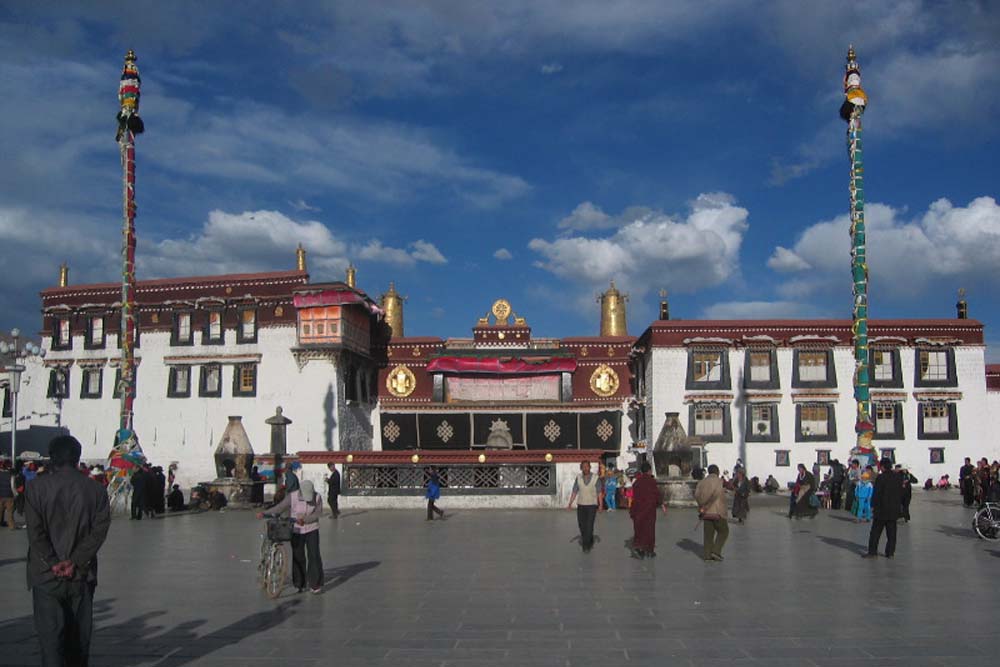
Tibetans consider this Buddhist temple, also known as Qoikang Monastery and Johkang Monastery, as the most sacred and important temple in Tibet. The oldest part of the temple was built in 652CE, while the most recent changes were brought by the 5th Dalai Lama in 1610.
During the Cultural Revolution in China in 1966, Chinese Red Guards attacked the temple and closed it for worship for the following ten years. The temple was renovated more recently, and in 2000, Johkang became a UNESCO World Heritage Site, joining its neighbor, the Potala Palace, which had been declared a World Heritage Site in 1994.[6]
Taking the eight precepts
One of the most common practices of Buddhists worldwide during Saka Dawa is called Taking the Eight Precepts. Both Mahayana and Theravada Buddhists share the tradition of taking the Eight Precepts for a full day, meaning from sunrise to sunrise.
It is taught that taking the precepts creates a lot of positive merit or karma. Anyone can take the Eight Precepts, therefore they are regarded as ideal for laypeople. The full moon day is considered to be the most powerful time of the whole of the month of Saka Dawa.
The eight precepts are
- Avoiding killing, either directly or indirectly.
- Avoiding stealing, which includes taking things without permission.
- Avoiding sexual contact.
- Avoiding lying or deceiving people.
- Avoiding intoxicants, which include: alcohol, tobacco and recreational drugs. (You may take prescription drugs.)
- Avoiding eating more than one meal during the full day of taking Precepts. The meal is to be taken before noon, and is considered finished when eating has stopped for more than 30 minutes. During Precepts, one can take light drinks, but not undiluted milk or fruit juice with pulp. One should not eat meat, fish, eggs, onions, garlic & radishes.
- Avoiding sitting (or sleeping) on a high and expensive bed with pride. One should also avoid sitting on animal skins.
- Avoiding wearing jewelry, perfume & Make-up. One should also avoid singing, dancing and playing music with attachment. [7]
Saka Dawa celebrates events in the life of the Buddha. For example, his birthday, accepting the vows of a monk, the day of his Parinirvana (death) and the day he became enlightened all fall within the month of Saka Dawa.
In places like Sri Lanka, temples, towns and villages are decorated with garlands and lights. On the full moon night, images of Shakyamuni Buddha and other holy objects and images, are carried in long processions on decorated chariots and elephants.
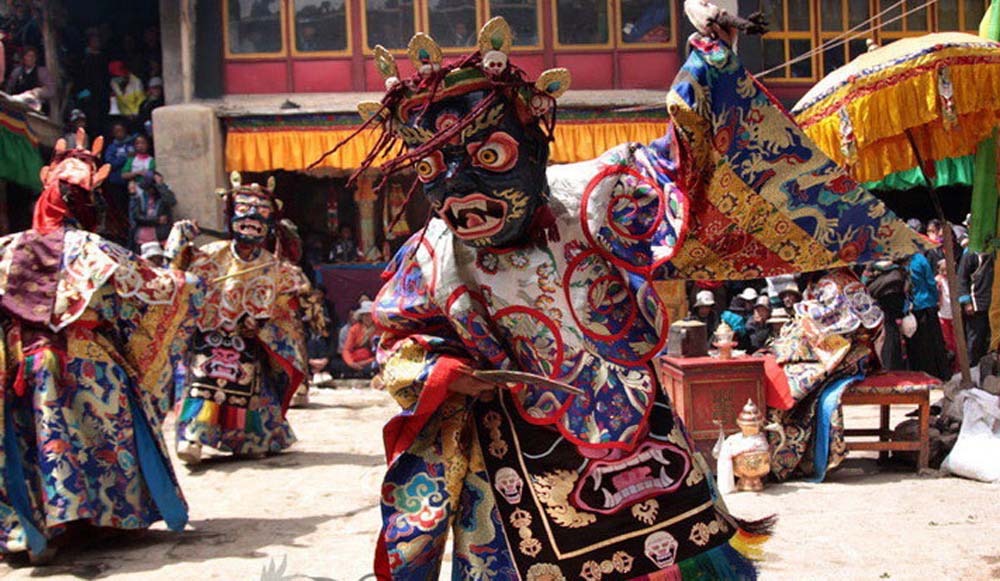
In Tibet, thousands of people turn their prayer wheels in the streets of Lhasa, others paddle boats in the Dragon King Pool, while others sing and dance.[9]
The whole month of Saka Dawa is seen as a special merit making month, when Buddhists everywhere try to do as many positive things as possible.
Some of the activities that take place during this period include:
- Pilgrimages to sacred sites, monasteries & temples.
- Giving donations to monks, nuns & monasteries.
- Giving charity to the poor.
- Offering butter lamps.
- Refraining from eating meat.
- Saving animals, such as captured live fish, by releasing them back into their natural habitat.[10]
Saka Dawa, also known as Vesak or Buddha Day
Saka Dawa has many different names and is celebrated on different days and in different ways depending upon the country where Saka Dawa is being celebrated. Called Vesak, Buddha Purnima, Buddha Day and Buddha’s Birthday in Vietnam and korea, the holy day is celebrated in Japan, Thailand, India, Indonesia, Mongolia, Myanmar, the Philippines, Nepal, Sri Lanka, Cambodia and more.
In addition to saying mantras and doing good deeds, there are festivals and elaborate processions with lights and flowers. Celebrations vary and can, for example, include electrically lit pandals (or marquees), called thoranas, like those erected in various places around Sri Lanka, used to illustrate different events from the life of the Buddha.
In South Korea, lantern processions fill the streets of Seoul. In Indonesia, monks walk the streets and receive charity and food offerings from the people, called the “Pindapata” ritual. In Singapore, Vesak is a national holiday, and in the village of Lumbini, in Nepal, thousands of pilgrims pay homage to the birthplace of the Buddha at the temple of Swayambu. [11]
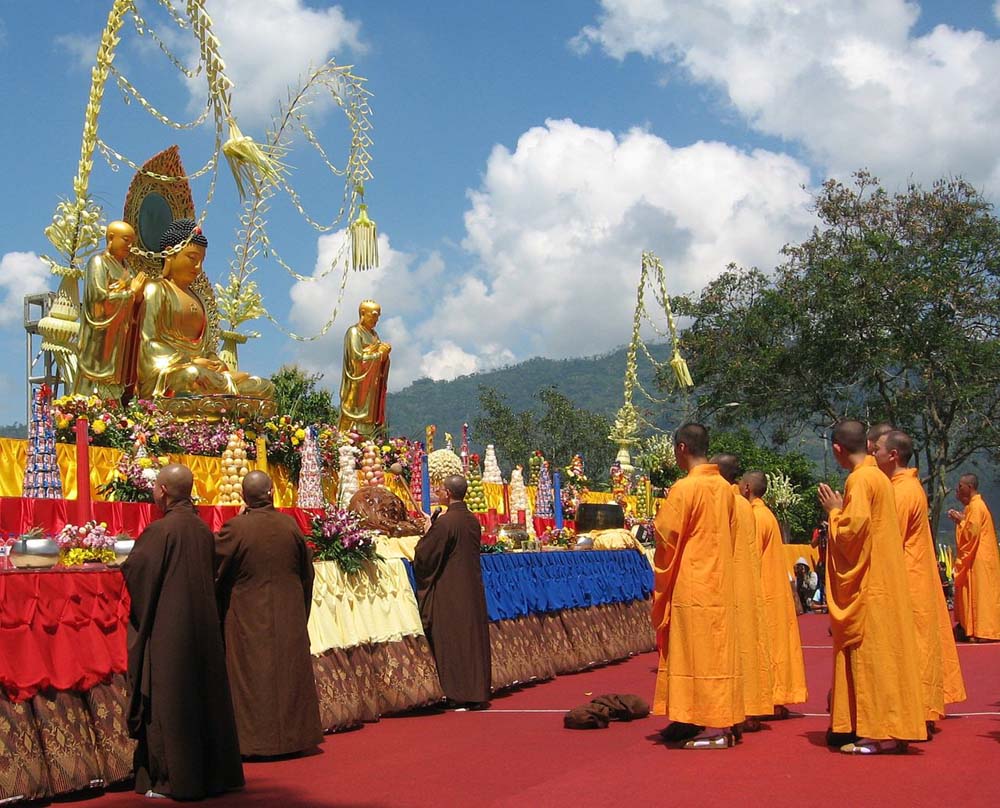
At the first conference of the World Fellowship of Buddhists, held in Sri Lanka in 1950, the conference adopted celebrating Wesakha or Vesak as the Buddha’s birthday.
In 1999, the United Nations General Assembly adopted resolution 54/115, which provided “International recognition of the day of Vesak at the United Nations Headquarters and other United Nations offices”.[12]
Saka Dawa celebrates the life, death and passing into parinirvana of Prince Siddhartha, who left his princely life to become a monk, and then worked assiduously to conquer his inner obstacles, reaching enlightenment under the Bodhi tree one night more than 2,500 years ago. Buddhists worldwide celebrate that achievement.
Buddhists also believe in reincarnation, so Saka Dawa gives believers the opportunity to help their chances for a good rebirth by doing meritorious deeds during the holy month of Saka Dawa.
In years past, former U.S. President Barak Obama and Canadian Prime Minister Justin Trudeau have formally recognized Vesak and observed the day at their offices.[13]
Notes
[1] Some countries simply celebrate the birth of the Buddha
[2] Source: skies of merit on saka dawa june-9
[3] Saka Dawa Düchen
[4] Tibetan festivals
[5] Source: Jokhang Temple in Tibet
[6] Jokhang
[7] tibetan-buddhism/saka-dawa
[8] Source: saka-dawa-festival
[9] culture/saka dawa
[10]religious-life/saka-dawa
[11] Source: Vesak
[12] events/vesakday
[13] celebrating-vesak-or-buddha-day/

